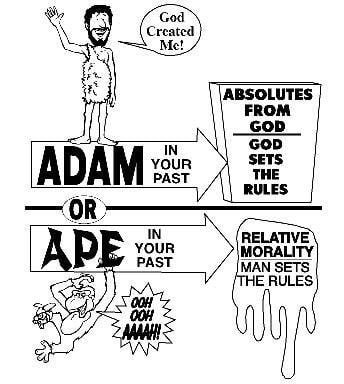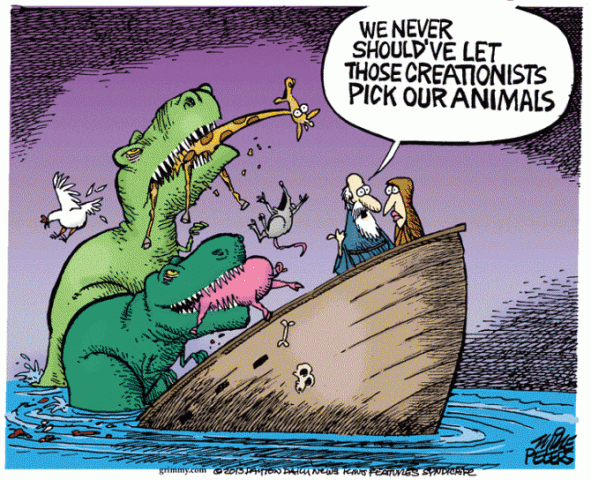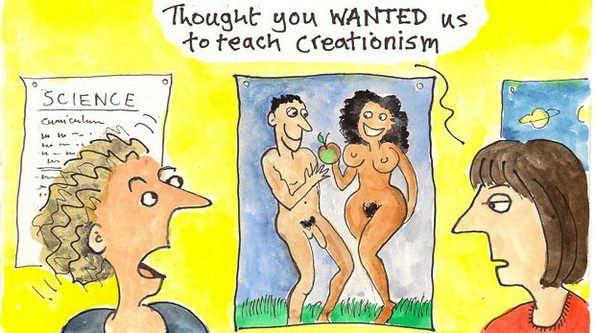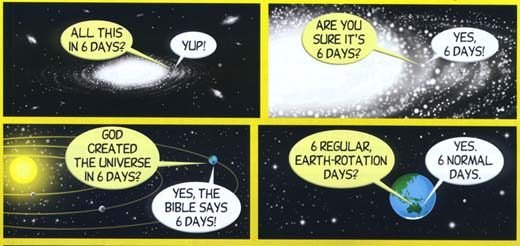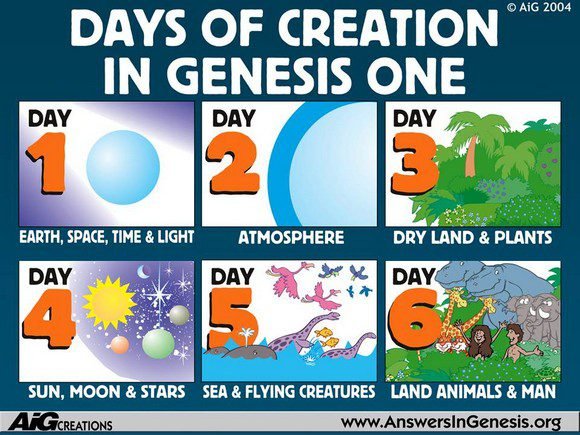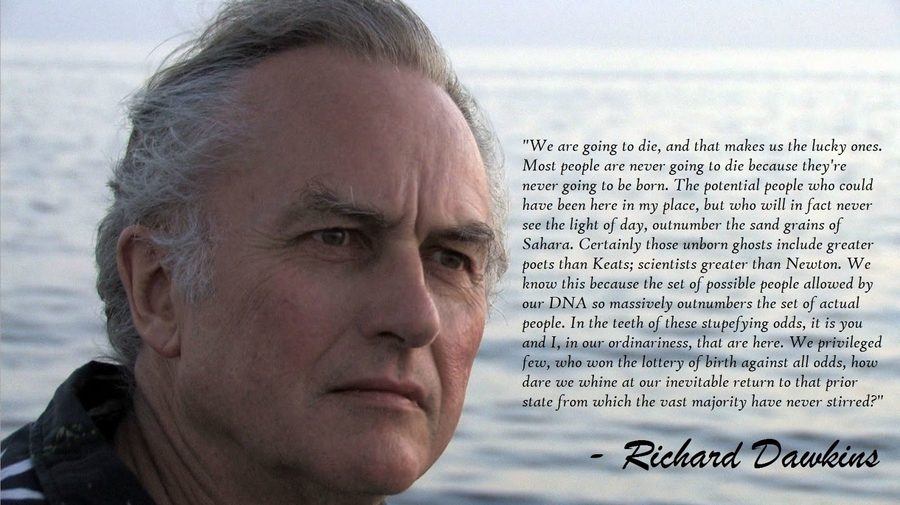
An Evangelical pastor whom I have known for over forty years recently sent me some questions, the answers to which appear below. He previously asked me some questions which I answered in a post titled, Four Questions from an Evangelical Pastor. I found his questions sincere and honest, unlike many questions I receive from Evangelicals. Far too often, ulterior motivations lurk behind some questions, but I don’t sense that here. Hopefully, readers of this blog will find my answers helpful.
Are there different levels of atheism?
The short answer is no. Atheism is defined thusly: disbelief or lack of belief in the existence of God or gods. That’s it. Unlike Christianity — a hopelessly fragmented group — all atheists agree on one thing: atheism is the disbelief or lack of belief in the existence of God or gods. From that point, atheist beliefs go in all sorts of directions.
There’s also what is commonly called the Dawkins Scale: the spectrum of theistic probabilities. Famed biologist Dr. Richard Dawkins spoke of this seven-level spectrum in his popular book, The God Delusion:
- Strong theist. 100% probability of God. In the words of Carl Jung: “I do not believe, I know.”De facto theist.
- Very high probability but short of 100%. “I don’t know for certain, but I strongly believe in God and live my life on the assumption that he is there.”Leaning towards theism.
- Higher than 50% but not very high. “I am very uncertain, but I am inclined to believe in God.”Completely impartial.
- Exactly 50%. “God’s existence and non-existence are exactly equiprobable.”Leaning towards atheism.
- Lower than 50% but not very low. “I do not know whether God exists but I’m inclined to be skeptical.”
- De facto atheist. Very low probability, but short of zero. “I don’t know for certain but I think God is very improbable, and I live my life on the assumption that he is not there.”
- Strong atheist. “I know there is no God, with the same conviction as Jung knows there is one.”
Atheists debate amongst themselves Dawkins’ scale, and whether agnostics are, in fact, atheists. Agnostics believe that the existence of God, of the divine, or the supernatural is unknown or unknowable. (Wikipedia) Another definition of agnosticism is as follows:
In the popular sense, an agnostic is someone who neither believes nor disbelieves in God, whereas an atheist disbelieves in God. In the strict sense, however, agnosticism is the view that human reason is incapable of providing sufficient rational grounds to justify either the belief that God exists or the belief that God does not exist. In so far as one holds that our beliefs are rational only if they are sufficiently supported by human reason, the person who accepts the philosophical position of agnosticism will hold that neither the belief that God exists nor the belief that God does not exist is rational. (Richard Rowe, Routledge Encyclopedia of Philosophy.)
I should mention in passing what I consider a distant third cousin of agnosticism: deism. Wikipedia describes enlightenment deism this way:
Enlightenment deism consisted of two philosophical assertions: (a) reason, along with features of the natural world, is a valid source of religious knowledge, and (b) revelation is not a valid source of religious knowledge. Different deist authors expanded on these two assertions to create what Leslie Stephen later termed the “constructive” and “critical” aspects of deism. “Constructive” assertions— assertions that deist writers felt were justified by appeals to reason and features of the natural world (or perhaps were intuitively obvious) — included:
- God exists and created the universe.
- God gave humans the ability to reason.
“Critical” assertions— assertions that followed from the denial of revelation as a valid source of religious knowledge— were much more numerous. They included:
- Rejection of all books, including the Bible, that are claimed to contain divine revelation.
- Rejection of the incomprehensible notion of the Trinity and other religious “mysteries”.
- Rejection of reports of miracles, prophecies, etc.
True Christianity
All deists rejected the Bible as a book of divine revelation. If you define “a Christian” as a person who accepts the stories in the Bible as true, divine revelations, the deists were not Christians. They rejected the miracle stories in the Bible and rejected the divinity of Jesus. Many, however, accepted Jesus as an actual historical person and held him in high regard as a moral teacher. (This position is known as Christian deism and was Thomas Jefferson’s motive for assembling his famous Jefferson Bible.) On the other hand, if you define “a true Christian” as a person regards the historical human person Jesus as a great moral teacher and attempts to follow Jesus’ moral teachings, many deists considered themselves to be true Christians. Some deists were of the opinion that Jesus taught timeless moral truths, that those moral truths were the essence of Christianity, and since those truths are timeless they predate Jesus’ teachings.
I have long believed that someone could look at the night sky and conclude that a deity of some sort created the universe; and that after creating the universe, this deity said, “there ya go boys and girls, do with it what you will.” This God is unknowable and non-involved in our day-to-day lives. Believe in this deity or not, it exists. Some readers of this blog will call this deity divine energy or power. Of course, it is not beyond the realm of possibility that what we call “life” is, in actuality, a Westworld-like alien game simulation. Once I was freed from the authority and bondage of the Bible, I was free to think more freely about human existence. Who knows, maybe “reality” is an illusion.
Here is my take: I am an agnostic and an atheist. I cannot know for certain whether a deity of some sort exists. It is possible, though unlikely, that a deity of some sort might reveal itself to us someday. Possible, but improbable. For me, it is all about probabilities. (And the probability of the existence of any deity, let alone the Evangelical God, is minuscule.) On the Dawkins scale I am a six. The currently available evidence leads me to conclude that there is no God or gods. I am open to the possibility of the existence of one or more deities should evidence of their existence ever be provided, but, until then, I live my day to day life as an atheist. The only time thoughts about God enters my mind is when I am writing for this blog.
That said, let me be clear: I am not an anti-theist. Some atheists are vociferously and stridently anti-religion. I am not one of them. This has led to all sorts of criticisms and attacks from what I call the fundamentalist wing of atheism. On occasion, I have had anti-theists tell me that I am not a True Atheist®. I laugh when such arguments are made, thinking, “is this not the same argument Evangelicals use against me when they say I was never a “True Christian®?”
Do all atheists rely strictly on science and history for answers?
Strictly or solely? No. Once we move from the base definition of atheism, atheists go in all sorts of directions philosophically, politically, socially, and even religiously. Yep, you will run into atheists who view themselves as “spiritual.” I have been blogging for almost thirteen years. I have met all sorts of atheists. Recently, several pro-Trump, anti-abortion, anti-homosexual atheists/agnostics have commented on this blog. I don’t understand their viewpoints and logic, but I don’t have to. Atheists are free to meander every which way from “atheism is the disbelief or lack of belief in the existence of God or gods.” One can be an atheist and be irrational; and believe me, more than a few atheists are as dumb as rocks. Some atheists will comment on this blog and leave me scratching my head and saying “huh?” I rarely respond to such people. I let them say their piece, hoping my silence will tell them all they need to know.
This would be a good point to mention the fact that many (most?) atheists are humanists. There’s nothing in atheism that gives a person moral or ethical grounding. Atheists look to humanism to find a framework by which to live their lives. The Humanist Manifesto remains the best summary of humanism:
Humanism is a progressive philosophy of life that, without supernaturalism, affirms our ability and responsibility to lead ethical lives of personal fulfillment that aspire to the greater good of humanity.
The lifestance of Humanism—guided by reason, inspired by compassion, and informed by experience—encourages us to live life well and fully. It evolved through the ages and continues to develop through the efforts of thoughtful people who recognize that values and ideals, however carefully wrought, are subject to change as our knowledge and understandings advance.
This document is part of an ongoing effort to manifest in clear and positive terms the conceptual boundaries of Humanism, not what we must believe but a consensus of what we do believe. It is in this sense that we affirm the following:
Knowledge of the world is derived by observation, experimentation, and rational analysis. Humanists find that science is the best method for determining this knowledge as well as for solving problems and developing beneficial technologies. We also recognize the value of new departures in thought, the arts, and inner experience—each subject to analysis by critical intelligence.
Humans are an integral part of nature, the result of unguided evolutionary change. Humanists recognize nature as self-existing. We accept our life as all and enough, distinguishing things as they are from things as we might wish or imagine them to be. We welcome the challenges of the future, and are drawn to and undaunted by the yet to be known.
Ethical values are derived from human need and interest as tested by experience. Humanists ground values in human welfare shaped by human circumstances, interests, and concerns and extended to the global ecosystem and beyond. We are committed to treating each person as having inherent worth and dignity, and to making informed choices in a context of freedom consonant with responsibility.
Life’s fulfillment emerges from individual participation in the service of humane ideals. We aim for our fullest possible development and animate our lives with a deep sense of purpose, finding wonder and awe in the joys and beauties of human existence, its challenges and tragedies, and even in the inevitability and finality of death. Humanists rely on the rich heritage of human culture and the lifestance of Humanism to provide comfort in times of want and encouragement in times of plenty.
Humans are social by nature and find meaning in relationships. Humanists long for and strive toward a world of mutual care and concern, free of cruelty and its consequences, where differences are resolved cooperatively without resorting to violence. The joining of individuality with interdependence enriches our lives, encourages us to enrich the lives of others, and inspires hope of attaining peace, justice, and opportunity for all.
Working to benefit society maximizes individual happiness. Progressive cultures have worked to free humanity from the brutalities of mere survival and to reduce suffering, improve society, and develop global community. We seek to minimize the inequities of circumstance and ability, and we support a just distribution of nature’s resources and the fruits of human effort so that as many as possible can enjoy a good life.
Humanists are concerned for the well being of all, are committed to diversity, and respect those of differing yet humane views. We work to uphold the equal enjoyment of human rights and civil liberties in an open, secular society and maintain it is a civic duty to participate in the democratic process and a planetary duty to protect nature’s integrity, diversity, and beauty in a secure, sustainable manner.
Thus engaged in the flow of life, we aspire to this vision with the informed conviction that humanity has the ability to progress toward its highest ideals. The responsibility for our lives and the kind of world in which we live is ours and ours alone.
To answer my friend’s question, the Humanist Manifesto states:
Knowledge of the world is derived by observation, experimentation, and rational analysis. Humanists find that science is the best method for determining this knowledge as well as for solving problems and developing beneficial technologies. We also recognize the value of new departures in thought, the arts, and inner experience—each subject to analysis by critical intelligence.
Humans are an integral part of nature, the result of unguided evolutionary change. Humanists recognize nature as self-existing. We accept our life as all and enough, distinguishing things as they are from things as we might wish or imagine them to be. We welcome the challenges of the future, and are drawn to and undaunted by the yet to be known.
Do all atheists believe in evolution?
Since I am not party to what all atheists believe, I can’t speak authoritatively on the matter. I can say that all of the atheists I know generally accept biological evolution as a scientific fact. While the word “belief” can be used in a variety of ways, in the context of evolution, atheists don’t believe in evolution. Belief, in this context, much like with religion, implies the use of feelings to come to a conclusion. Most atheists I know would say that their acceptance of evolution and other scientific conclusions rests on evidence, facts, and probabilities, not their feelings.
For most of my life, I was illiterate when it came to science. I believed that Genesis 1-3 told me all I need to know about biology, cosmology, and the like. God created everything just as it is recorded in the inspired, inerrant, infallible Bible — end of discussion. I had a few creationist-oriented Evangelical apologetical books in my library. All these books did for me was affirm that I was “right.” It wasn’t until I was disabused by Dr. Bart Ehrman and others of the notion that the Bible was some sort of perfect, supernatural book that I was able to question what it was exactly I believed about science.
One of the first books I read on this subject was biologist Dr. Jerry Coyne’s book, Why Evolution is True. Another helpful book by Coyne is titled, Faith vs. Fact: Why Science and Religion are Incompatible. For someone still in the Evangelical tent, books by physicist Dr. Karl Giberson might be helpful: Saving Darwin: How to Be a Christian and Believe in Evolution and The Language of Science and Faith: Straight Answers to Genuine Questions. Giberson’s support of evolutionary biology ultimately led to his dismissal from Eastern Nazarene College in 2011. Both Giberson and Dr. Francis Collins remain controversial figures within Evangelicalism, with more than a few Evangelicals saying that neither man is a Christian. I have my own doubts about whether Giberson or Collins are actually Evangelicals, but I am content to let people self-identify as they please.
Bruce, what do you believe about our existence?
Let me be clear, I am not a scientist. I know a hell of a lot more about science today than I did a few years ago, or when I was a Bible-believing preacher, but that doesn’t mean I can speak authoritatively on matters of science. I continue to educate myself, but at my age, I will likely run out of time before I master any specific scientific discipline. I hope that that one or more of my grandchildren will do so and become what their grandfather could not. Many of my grandchildren are straight-A students, so I have high hopes that some of them will enter STEM programs post-high school.
I know where I am lacking knowledge-wise, and I do my best to not speak beyond that which I know. Want to talk about the Bible, Evangelicalism, theology, photography, or Windows-based computers? You will find that I generally know what I am talking about. However, when it comes to biology, astronomy, cosmology, geology, archeology, and other scientific disciplines, I am, in every way, a novice. It is for this reason that I rely on experts to tell me what I need to know about science. Smart is the person who values expertise. I have certain scientists I trust to tell me the truth. “So, Bruce, does this mean you put “faith” in what they say?” Yes. Many atheists shy away from the word faith because of its religious connotations. However, I refuse to let religion hijack certain words. Faith means “confidence in a person or plan.” There are scientists that I put great confidence in; when they speak, I listen. No, these men and women are not infallible, but they have given their lives to understanding this or that science discipline, so I trust what they say.
In Christianity, there is so much disagreement! How about among atheists?
There’s no doubt that Christianity is the most fragmented religion on the planet. I have long argued that if Christians were unified theologically that I might at least pause for a moment when considering the “God question.” However, there are thousands and thousands of Christian sects, each with its own version of the “faith once delivered to the saints.” This disunity says to me that Christianity is very much of human origin.
I wish I could say that atheism is monolithic, and everyone thinks and believes the same things. Sadly, atheism is quite divided too. Not so much on the core belief: “atheism is the disbelief or lack of belief in the existence of God or gods.” Every atheist I know believes this statement to be an accurate definition of their view on God or gods. However, recent years have brought attempts by some to expand the definition of atheism to include social justice issues. This spawned a group called Atheism+. While there was a moment when I thought Atheism+ might be worthwhile, I quickly thought better of it after seeing who it was that was driving this attempt to redefine atheism. Socially and politically, I am as liberal as you come, but I saw Atheism+ as a purity test; an attempt to divide atheism between us and them. I concluded that the proponents of Atheism+ were using methodologies eerily similar to those I saw in Evangelicalism. No thanks. And let me be clear to Atheism+ flag-wavers, I have zero interest in re-ligating this issue with you in the comment section. Been there, done that, still bleeding.
Here’s one thing I know about most atheists. We can heartily disagree with one another and later enjoy each other’s company at a pub or restaurant. Back in my Evangelical days, every disagreement had eternal significance. Not so with most atheists. I don’t understand how an atheist can support Donald Trump or the present iteration of the Republican party, but I am not going to let that affect our relationship (if we have one). I have booted several pro-Trump atheists off this site, not because of their politics, but because they were assholes. And as much as I hate to admit it, there are atheist assholes; people who don’t play well with others; people who think throwing feces at people on social media is “good conversation.”
I hope I have adequately answered my Evangelical friend’s questions.
About Bruce Gerencser
Bruce Gerencser, 62, lives in rural Northwest Ohio with his wife of 41 years. He and his wife have six grown children and twelve grandchildren. Bruce pastored Evangelical churches for twenty-five years in Ohio, Texas, and Michigan. Bruce left the ministry in 2005, and in 2008 he left Christianity. Bruce is now a humanist and an atheist. For more information about Bruce, please read the About page.
Are you on Social Media? Follow Bruce on Facebook and Twitter.
Thank you for reading this post. Please share your thoughts in the comment section. If you are a first-time commenter, please read the commenting policy before wowing readers with your words. All first-time comments are moderated. If you would like to contact Bruce directly, please use the contact form to do so.
Donations are always appreciated. Donations on a monthly basis can be made through Patreon. One-time donations can be made through PayPal.
Share This Post On Social Media:


